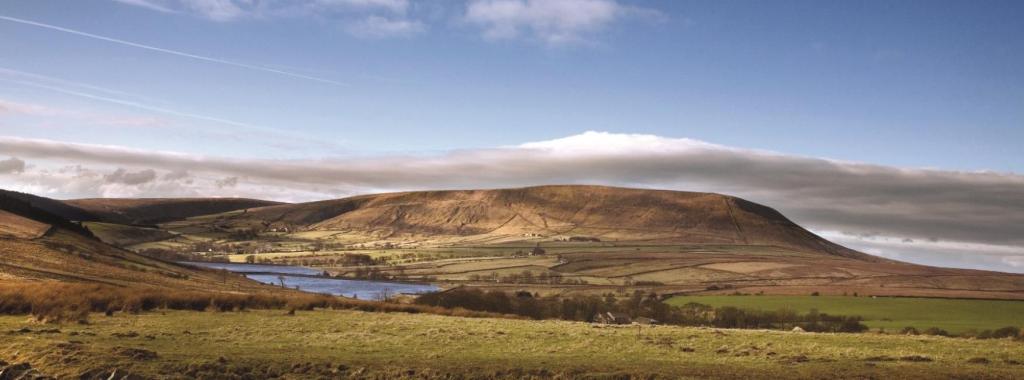
Pendle Hill is a relatively modest elevation of 557 metres. It forms part of the Pennines, in north-west England (an area once known as Cumbria. The name was revived with local authority boundary changes in the 1970s). It is mostly known for its association with the Pendle witches – twelve unfortunate souls who were accused of witchcraft in 1612. One died in prison but the others were hung for their supposed crimes.
The hill remains linked with witchcraft to this day, especially on the last night of October when hordes of people, few of whom have any affiliation with witches, climb the mountain to celebrate Halloween. I climbed it myself one Halloween (and camped out overnight with a group of friends) whilst a student at Manchester University. We took plenty of beer and crisps, but not a single cauldron, or toad’s leg, between us.
Pendle Hill is also associated with Quakers. In 1652, George Fox climbed to the summit and had a vision as he surveyed the grandeur of the scenery around him. This lead to his formation of the Society of Friends, otherwise known as the Quakers.
But the hill’s main interest, for a blog about words and their meanings, is that Pendle Hill is just a way of saying hill in three different languages. Originally it was spelt Penhul. Pen meant hill in the local language, Cumbric. Hul also meant hill in Old English (hyll) and the third hill was added later when the original meaning of pen hul / Pendle was forgotten.
Pendle Hill is not unique in this respect. Bredon Hill in Worcester (famously immortalised in A E Housman’s collection of poems The Shropshire Lad) also translates as Hill Hill Hill. Bre = Celtic; don = Old English; with the third hill added centuries later ‘for clarification’.
Links to my books and social media
You can find all my books and short stories on Amazon books.
At least one story always free. ALL BOOKS FREE ON KINDLE UNLIMITED